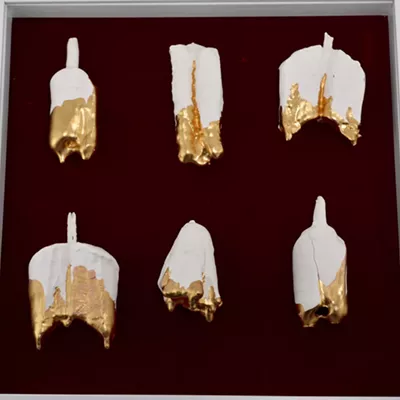Vollmann book: don’t. Just set it on your coffee table and hope the damn table doesn’t collapse. And because Vollmann writes in helter-skelter fragments, there’s really no need to peruse his noniction in a traditional linear fashion. Just grab something like the 1,200-page Imperial and stick it in the bathroom. After a few months, you’ll know more about borderland California than any of your friends.
At 500 pages, Kissing the Mask is almost an essay by Vollmann’s standards, though its subtitle (Beauty, Understatement and Femininity in Japanese Noh Theater With Some Thoughts on Muses [Especially Helga Testorf], Transgender Women, Kabuki Goddesses, Porn Queens, Poets, Housewives, Makeup Artists, Geishas, Valkyries and Venus Figurines) indicates the breadth of its subject matter. I don’t know why Vollmann didn’t include cross-dressing in that list. In a chapter detailing his transformation into a woman, he muses on the perils of rough skin and becomes so enamored of his wig (“My reddish-gold hair spills down to my breasts, so soft and golden in its highlights”) that he’s inspired to quote a Sutra.
It’s a typical moment in a book where Vollmann confesses to being “deaf, dumb and illiterate in Japanese, innocent of formal study in any discipline of art, a graceless dancer aflicted with bad eyesight.” As a result, he is a captivated reporter of grace, a tireless interpreter of Japanese, and a writer whose best moments bring images to a clarity that surpasses the merely visual. His descriptions of Noh drama are penetrating in their attempts to render the art form into language. Rather than plead the impossibility of translating the experience, Vollmann bravely plunges in, making wide-eyed observations. He rewrites the poetry of Noh in his own verse.
Vollmann’s style allows him to express his enthusiasm in lights of fancy that ly in the face of conventional order. It reminds us that we are occasionally irrational, inspired, sensitive beings. In books like Poor People, the result is breathtakingly compassionate. In Kissing the Mask, it lifts the book’s esoteric subject to an almost sublime degree of importance. You don’t just read it — you live with it.















